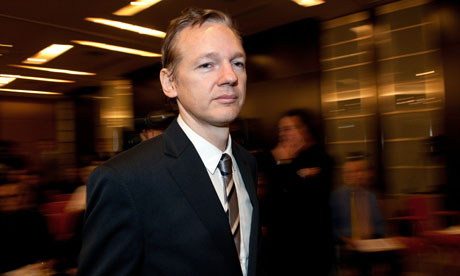
The Norwegian Nobel Committee keeps candidates secret for 50 years, but those with nomination rights sometimes make their picks known.
Snorre Valen, a 26-year-old legislator from Norway's Socialist Left Party, told The Associated Press on Wednesday he handed in his nomination in person on Tuesday, the last day to put forth candidates.
'I think it is important to raise a debate about freedom of expression and that truth is always the first casualty in war,' Valen said. 'WikiLeaks wants to make governments accountable for their actions and that contributes to peace.'
Valen also announced his choice on his blog, where he wrote that WikiLeaks had advanced the struggle for human rights, democracy and freedom of speech, just like last year's winner, Chinese dissident Liu Xiaobo.
Valen cited disclosures of nepotism and corruption in Tunisia's presidential family, saying WikiLeaks 'made a small contribution to bringing down' that regime.
The prize committee typically receives more than 200 nominations, so being nominated doesn't say anything about a candidate's chances of actually winning. And there's no way of knowing for sure that people who announce candidates actually submitted a legitimate nomination to the award committee.
Kristian Harpsviken, a leading Nobel-watcher and director of the Peace Research Institute Oslo, said he didn't consider WikiLeaks as a strong candidate for the 10 million kronor ($A1.59 million) award.
'The reason I think it's unlikely is that there has been so much criticism of WikiLeaks, not least how they have handled identification issues of people in the documents,' he said. 'I don't think it quite does the trick.'
Harpsviken keeps a list of 'possible and confirmed nominations,' based on public announcements and his own sources. His list this year includes WikiLeaks as well as Bradley Manning, the Army private accused of leaking material to the website.
Kyrgyz President Roza Otunbayeva, Afghan human rights advocate Sima Samar, and several rights groups including US-based Wings of Hope and Cuban opposition movement Damas de Blanco are also on the list.
His own top guess is Russian rights group Memorial, followed by activists Leymah Gbowee of Liberia and Ory Okolloh of Kenya.
The committee will announce the winner in October.
Source: Sky News











